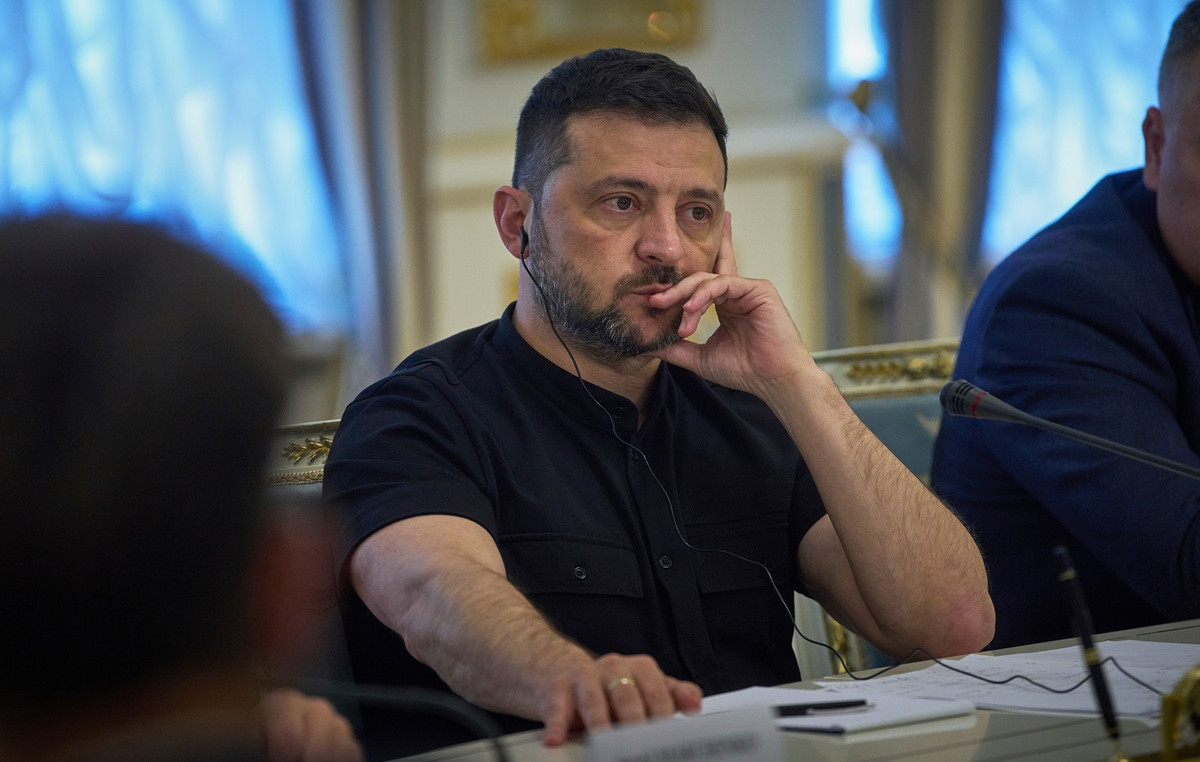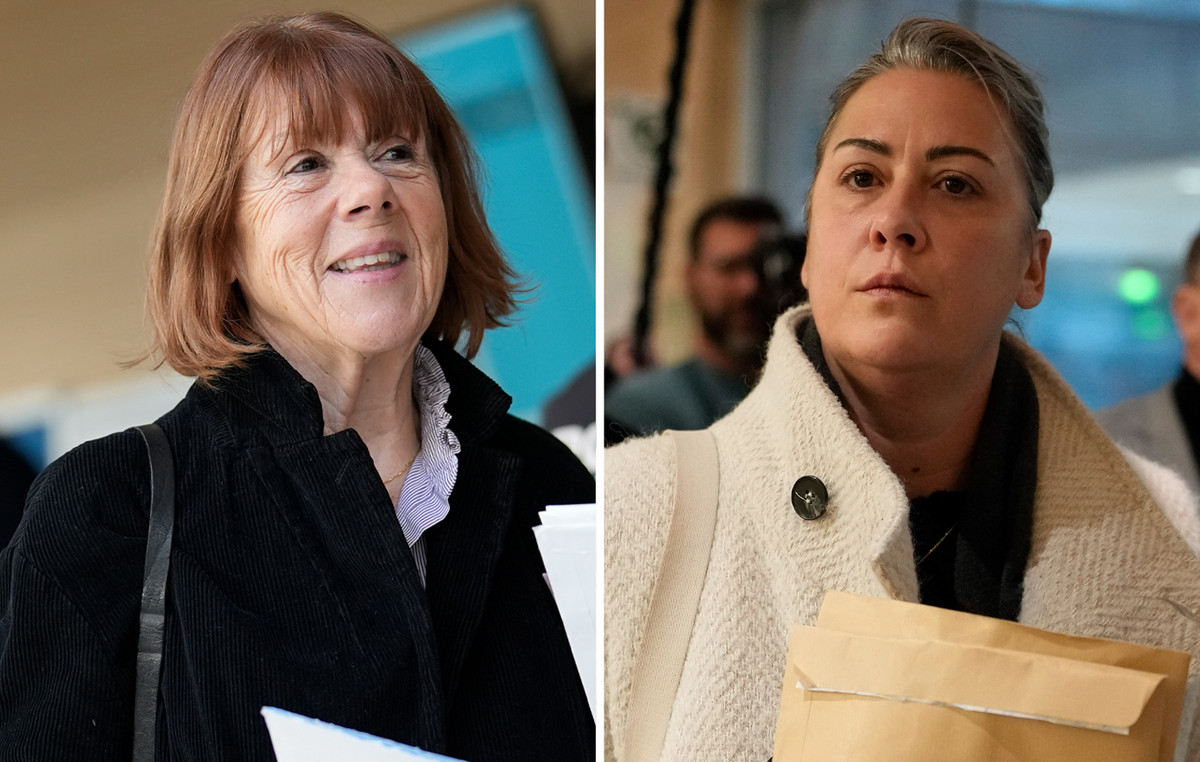An excited Republican base and lingering concerns about the economy put the GOP in a strong position with just under a week to go before the contest for control of the US House of Representatives. The conclusion comes from the figures of a new survey by the CNN conducted by the SSRS institute.
The new poll, taken Wednesday, shows that the Democratic Party’s enthusiasm for the vote is significantly lower than it was in 2018, when Democrats took control of the House.
Republican voters in the new poll express greater involvement with this year’s midterm elections than Democrats on several questions that measure the likelihood of voting.
The poll divided voters into probable and registered voters, as voting is not mandatory in the country. Overall, 27% of registered voters say they are extremely excited about this year’s election, down from 37% from the 2018 midterms — and the decline in enthusiasm comes almost entirely among Democrats.
Four years ago, 44% of voters registered as Democrats said they were extremely excited about the vote; now, only 24% say the same. Among Republicans, the number dropped slightly, from 43% to 38%.
While general enthusiasm about the vote is now lower than it was in October 2010, the upside of Republican involvement is now similar to that revealed in the poll. CNN that year, which ended with a strong republican result.
Then, as now, Republican voters were 14 points more likely to say they were extremely excited about the midterm vote (31% of Republican voters were extremely excited versus 17% of Democrats).
In the new poll, Republicans outperform Democrats in answering an unprovoked question about which party’s House candidate they would support in their own district.
They are 51% and 47%, respectively, among likely voters, strictly outside the margin of error. Among registered voters, the race is nearly even, with 47% supporting Republicans and 46% Democrats. Answers to open questions (that is, not encouraged, without naming the candidates) have often resulted in Republican victories in Congress.
This year, Republicans running for a seat are benefiting from the national economic picture. The economy and inflation are by far the most important issue for prospective voters in the finals, with about half of all likely voters (51%) saying this issue will determine their vote for the legislature.
Abortion is the second most important issue, a concern for 15% of likely voters. Other tested questions were chosen by less than 10% of likely voters. They include voting rights and electoral integrity (9%), gun policy (7%), immigration (6%), climate change (4%) and crime (3%).
Likely Republicans and Independents are very focused on the economy, with 71% of Republicans and 53% of Independents calling it their top issue in the election. Likely Democratic voters are more divided, with the economy and abortion nearly tying as the most important issue: 29% nominate abortion; 27%, the economy and inflation.
Likely voters who say the economy is their top concern vote strongly in favor of Republicans, 71% to 26%. By an even wider margin, they say they rely more specifically on the GOP to deal with the economy and inflation (71% Republicans versus 18% Democrats).
The survey found a widespread and widespread perception that the economy is already in recession, with a large majority also saying that things in the country are not going well as a whole.
Overall, 75% of Americans say the economy is in recession, up from 64% who felt that way midyear in the July poll. Majorities across all party lines see the economy as already in recession, including 91% of Republicans, 74% of Independents and 61% of Democrats.
An overall majority (55%) say they are dissatisfied with their own personal financial situation, up from 47% who felt this way in the first half. A majority of Republicans (57%) and independents (62%) express dissatisfaction with their finances, while Democrats are more likely to be satisfied (55% satisfied, 45% dissatisfied).
Nearly three-quarters of Americans (74%, including 72% of likely voters) say the country’s situation is bad today.
It’s a slight improvement from mid-year, when 79% of all adults had the same idea, but it’s similar to how Americans felt about the state of the country just before the midterm elections. 2010 (75% said things were bad) and significantly worse than just before Election Day 2018 (44% said things were bad in early November).
The last time a majority of the American people said that things in the US were going well was in January 2020, before the Covid-19 pandemic.
Amid growing economic malaise and stagnant negativity about the nation, President Joe Biden’s approval rating also dropped in the new poll. On average, 41% of adults say they approve of the president’s performance, down from 44% in the previous poll of the CNN although still above its mid-year low.
Among likely voters, Biden’s popularity stands at 42%, about the same as Donald Trump among likely voters in 2018 (41% approval) and Barack Obama in 2010 (43% approval).
The new research CNN was conducted by the SSRS Institute between October 26 and 31 on a nationwide random sample of 1,508 adults from a probability-based panel, including 1,290 registered voters and 992 likely voters.
The questionnaire was administered online or over the phone with a live interviewer. The results have a margin of sampling error of plus or minus 3.2 percentage points; it is 3.4 points among registered voters and 3.8 among probable voters. Likely voters were identified through a series of questions about their intent, interest and voting history.
trust and concessions
Half of Americans are confident that the US election results reflect the will of the people. Republicans are less confident than Democrats in the fairness of the process and more likely to reject the idea that defeated candidates have a responsibility to grant victory.
Fifty percent of adults say they are at least somewhat confident that today’s US elections reflect the will of the people, with the rest expressing little or no confidence.
This represents a modest improvement from the survey of the CNN made in July, when only 42% described themselves as confident. The shift is largely due to a modest recovery in confidence among independents (49% say they are at least somewhat confident in the election, up from 38% in the previous poll) and Republicans (41%, up from 29% ). Confidence remains highest among Democrats: 61% express at least some confidence, similar to the 57% who said the same in July.
Still, Republicans’ increased confidence in the electoral system does not translate into a greater willingness to accept the 2020 presidential election results: 66% of Republicans say they do not believe Biden has legitimately won the election, a rate unchanged since July.
The vast majority of Americans, 82%, say losing candidates in their state have an obligation to accept the results and acknowledge defeat, but 17% say losing candidates need not face such an obligation.
A quarter of Republicans say defeated candidates are under no obligation to concede defeat, compared with 7% of Democrats.
Within the GOP, this view is concentrated among election deniers: 33% of Republicans who deny that Biden won fairly do not think that defeated candidates should be forced to concede defeat, a view shared by just 8% of Republicans. who accept the results of the 2020 elections.
Republicans are also less likely than Democrats to say that doubting their own party’s defeat undermines public confidence in the nation’s electoral system.
A 71% majority of Democrats and Democratic-leaning independents say a losing candidate from their party who has expressed distrust of the results would bring more doubt about the electoral process.
A smaller majority, 54%, of Republicans and supporters say that a candidate from their party who lost would diminish confidence in the election if they cast doubt on the results.
On both the republican and democratic sides, supporters are more likely than independents sympathetic to their party to say that their candidate would increase confidence in the elections by doubting the results.
Respondents without a college degree are also more likely than graduates to see such a move as confidence-inducing. On the Republican side, self-declared conservatives are more likely than moderates to say that doubting election results inspires confidence in the system; there is no similar ideological gap on the Democratic side.
Source: CNN Brasil
I’m James Harper, a highly experienced and accomplished news writer for World Stock Market. I have been writing in the Politics section of the website for over five years, providing readers with up-to-date and insightful information about current events in politics. My work is widely read and respected by many industry professionals as well as laymen.







